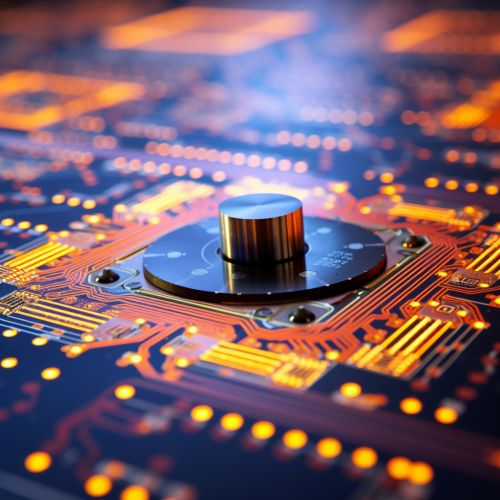Quantum Transistor
Introduction
A quantum transistor is a quantum device that uses the principles of quantum mechanics to achieve its functionality. Unlike classical transistors, which are the fundamental building blocks of modern electronic devices, quantum transistors leverage the unique properties of quantum particles to enable faster and more efficient computation.


Quantum Mechanics and Transistors
Quantum mechanics is a branch of physics that describes the behavior of particles at the smallest scales. It introduces several key concepts that are fundamental to the operation of quantum transistors.
Superposition
The principle of superposition states that a quantum system can exist in multiple states simultaneously. This is in stark contrast to classical systems, which can only exist in one state at a time. In the context of a quantum transistor, this allows for the simultaneous processing of multiple inputs, greatly increasing computational speed and efficiency.
Entanglement
Quantum entanglement is a phenomenon where two or more particles become interconnected such that the state of one particle immediately influences the state of the other, regardless of the distance between them. This property is used in quantum transistors to create a form of quantum communication between different parts of the transistor, enabling faster data transfer.
Quantum Tunneling
Quantum tunneling is a quantum mechanical phenomenon where a particle can pass through a potential barrier that it would not be able to surmount according to classical physics. This property is utilized in quantum transistors to allow electrons to move between energy states, enabling the transistor to switch states rapidly.
Quantum Transistor Design
The design of a quantum transistor is fundamentally different from that of a classical transistor. While classical transistors are based on the control of electron flow through a semiconductor material, quantum transistors operate by controlling the quantum states of individual electrons.
Quantum Dots
Quantum transistors often utilize quantum dots, which are nanoscale semiconductor particles that have quantum properties. These quantum dots serve as the quantum equivalent of a classical transistor's gate, source, and drain. By controlling the energy levels of these quantum dots, the flow of electrons through the transistor can be precisely controlled.
Quantum Gates
Quantum gates are the basic building blocks of quantum circuits, analogous to logic gates in classical computing. In a quantum transistor, these gates are used to manipulate the quantum states of the electrons, enabling the transistor to perform complex computations.
Applications of Quantum Transistors
Quantum transistors have a wide range of potential applications, many of which are still in the experimental stage.
Quantum Computing
The most prominent application of quantum transistors is in quantum computing. Quantum computers use quantum transistors to perform computations that would be infeasible for classical computers. This includes tasks such as factoring large numbers, simulating quantum systems, and solving complex optimization problems.
Quantum Communication
Quantum transistors can also be used to facilitate quantum communication. This involves using quantum entanglement to transmit information instantaneously across large distances, a process known as quantum teleportation.
Quantum Sensing
Quantum sensing is another potential application of quantum transistors. By leveraging the sensitivity of quantum systems to their environment, quantum sensors can measure physical quantities with unprecedented precision.
Future of Quantum Transistors
While quantum transistors hold great promise, there are still many challenges to be overcome before they can be widely adopted. These include issues related to manufacturing, scalability, and error correction. However, ongoing research in the field of quantum technology is continually advancing our understanding and capability in these areas.
